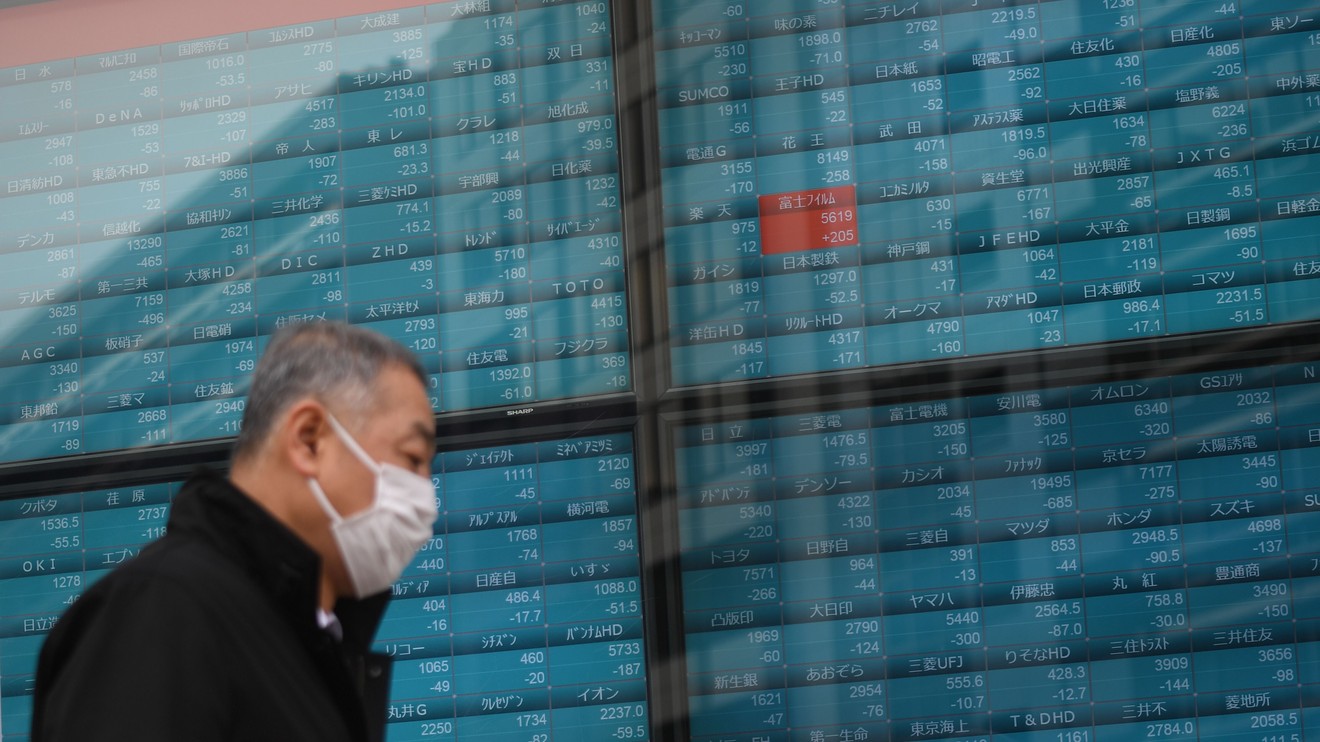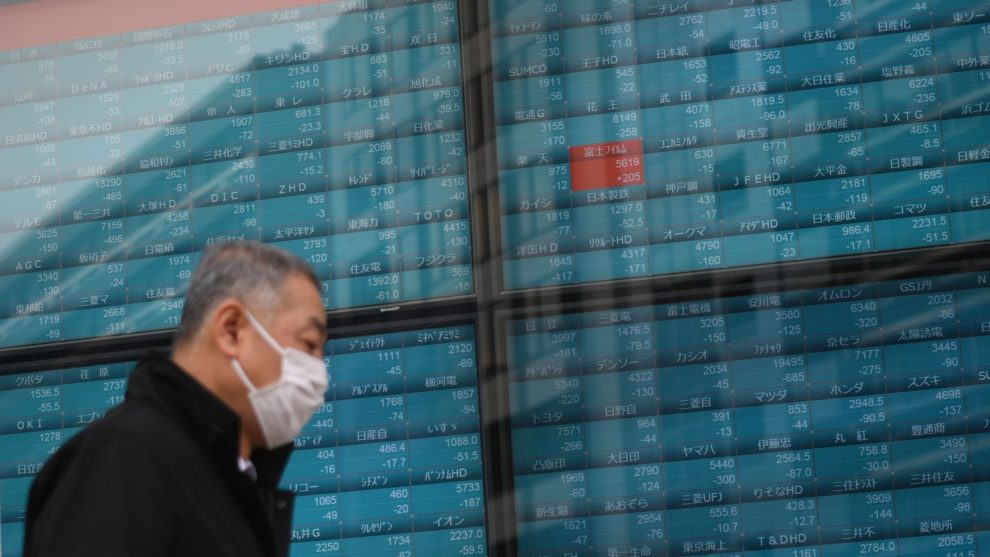
The U.S. stock-market rally is unraveling, with a period of historic gains coming to a screeching halt, as fear that the coronavirus epidemic may reach America rattles Wall Street.
The Dow Jones Industrial Average DJIA, -3.15% was off 929.92 points, or 3.3%, at its Tuesday nadir, at 27,030.88, a day after the blue-chip benchmark suffered a drop of more than 1,000 points, representing the third worst one-day point drop in the index’s 124-year history.
The Dow finished Tuesday down nearly 880 points to mark its sharpest-ever two-session slide in point terms, losing about 1,910 points, according to Dow Jones Market Data.
The fall also marked the largest two-day percentage slide for the index since the period ended Feb. 5, 2018. The skid puts the Dow 8.4% away from its Feb. 12 record-high close of 29,551.42. That means the Dow is approaching correction territory at 26,596.28, defined as a drop of at least 10%, but not greater than 20%, from a recent peak.
Meanwhile, the S&P 500 SPX, -3.03% and the Nasdaq Composite COMP, -2.77% finished sharply lower. The S&P 500 is off 7.6% from its recent record high on Feb. 19 and has shed nearly $1.74 trillion this week, according to Howard Silverblatt, senior index analyst at S&P Dow Jones Indices, in a Tuesday research note.
The Nasdaq is off 8.6% from its Feb. 19 all-time closing high. Put another way, its recent decline is 1.4 percentage points from representing a correction. That would occur at the 8,835.46 level.
Here’s are 5 reasons that the market is falling:
COVID-19
Fear of the COVID-19 disease infecting the U.S. is intensifying. The illness derived from the novel coronavirus, SARS-COV-2, which originated in Wuhan, China, late last year, is starting to affect global trade and travel and taking a bite out of confidence about earnings and economic growth.
Nancy Messonnier, director of the National Center for Immunization and Respiratory Diseases at the Centers for Disease Control and Prevention, said on Tuesday that “the disruption of daily life might be severe.”
The World Health Organization hasn’t declared the viral infection a pandemic, but the disease, from the family of viruses known as SARS, or severe acute respiratory syndrome, has sickened people in China, South Korea, Japan, Malaysia, Italy and Iran. And according to Reuters, Austria, Spain, Croatia and Switzerland have also confirmed their first cases.
The virus has virtually crippled swaths of manufacturing in China, the second largest economy in the world, and the country is a big buyer of products and services from other countries. U.S. technology companies such as Apple Inc. AAPL, -3.39% depend on Chinese supplies.
Read: Why a ‘supply shock’ is biggest stock-market worry as viral outbreak continues
Investors don’t know how long the outbreak will last, and it is too early to determine to what degree it will hurt corporate earnings, but a number of companies, including Hasbro Inc. HAS, -4.68%, HP Inc. HPQ, +5.66% and Mastercard Inc. MA, -6.71%, have already said that they think it will.
The 2020 election
Uncertainty about the U.S. presidential election’s outcome is also starting to drive markets, strategists and analysts argue. A number of them think that if Sen. Bernie Sanders, an independent from Vermont who characterizes himself as a democratic socialist, wins the Democratic presidential nomination, and possibly even the presidency, stocks would take a hit as he is perceived by some as an antibusiness candidate. “The risk to U.S. stocks is pretty significant if Bernie gets the nomination,” said Ed Moya, a senior market analyst with OANDA.
Lofty valuations
Even before the market slump this week, the value of stocks has been viewed as rich.
One measure of stock-market values showed that the S&P 500 index was trading at 18.9 times the weighted aggregate consensus forward earnings estimate among analysts polled by MarketWatch. That is up from 16.2 a year ago, and, aside from a brief point early in 2018, it is the highest forward price-to-earnings ratio for the benchmark index since May 2002.
The bond market
Government bonds yields have been sliding steadily as investors seek safe havens, and thus drive up bond prices, amid doubts about global economic growth in the wake of the coronavirus outbreak.
The 10-year Treasury note yield TMUBMUSD10Y, -0.81% carved fell to a record low below 1.32% earlier Tuesday, and the 30-year Treasury note TMUBMUSD30Y, -0.46% rate notched its all-time low last week.
Recession fears
Bond investors fear that the coronavirus might result in a global economic slowdown that might wash up on U.S. shores as a full-fledged recession. MarketWatch economics writer Rex Nutting explained the potential for an uncontained outbreak of COVID-19 this way: “Much of the immediate economic impact of a pandemic can be traced to the efforts to contain it, rather than from the effects of the disease itself. As we attempt to quarantine those who might spread the disease, we shut down a lot of economic activity.”
A Congressional Budget Office study found that a pandemic “could produce a short-run impact on the worldwide economy similar in depth and duration to that of an average postwar recession in the United States.”
div > iframe { width: 100% !important; min-width: 300px; max-width: 800px; } ]]>







